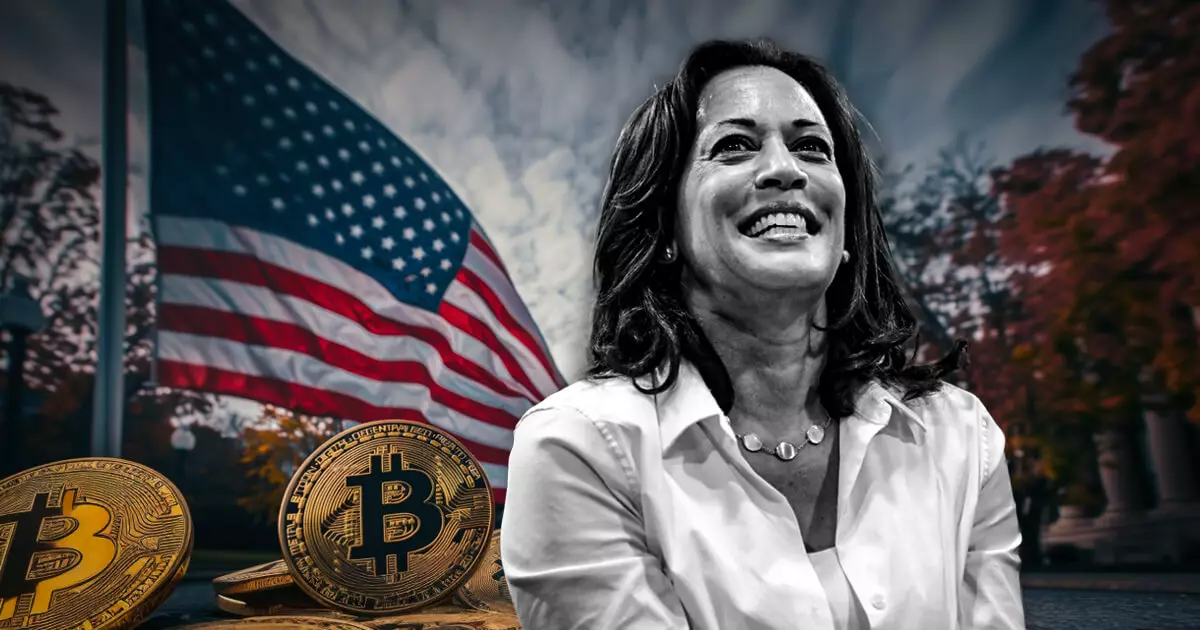The evolving landscape of cryptocurrency regulation in the United States is a critical focal point for investors, industries, and stakeholders involved in digital assets. With the upcoming election, understanding how different presidential candidates view cryptocurrency is paramount. According to Alex Thorn, the head of research at Galaxy Digital, candidates’ stances can have significant implications for the industry’s future. Thorn has developed a ‘policy scorecard’ evaluating these stances, with a spotlight on Vice President Kamala Harris and former President Donald Trump.
Thorn’s analysis suggests that a Harris presidency may bring a more favorable environment for cryptocurrency than the Biden administration. Despite Harris’ past criticisms of wealth-tax reforms, her approach to the crypto market suggests a nuanced understanding of the importance of digital assets, which could limit the adverse impacts of regulation. However, Trump presents the most enticing picture for crypto enthusiasts; his previous administration was characterized by a laissez-faire attitude toward cryptocurrency, which could be beneficial if he regains office.
The crux of the analysis lies in the differences surrounding four pivotal issues: tax policy, Bitcoin mining, self-custody, and banking regulations. Each candidate’s view represents broader ideological undercurrents affecting their respective platforms.
One of the core issues highlighted in the scorecard is taxation. Harris has made commitments that could signify a tougher stance on the wealthiest, which could extend into digital asset taxation as well. Galaxy’s analysts have starkly described her tax policy as “extremely hostile,” primarily due to her intention to reverse tax cuts implemented during Trump’s presidency. This poses a significant risk to crypto investors who benefit from clearer tax positions and potentially favorable treatment under less regulated environments.
Conversely, Trump’s anticipated policies could delineate a more coherent and favorable structure for taxing cryptocurrencies, promoting investment and innovation. A structured environment under Trump could ease concerns for both current investors and those looking to enter the crypto market.
Bitcoin mining has become a contentious issue, especially as environmental concerns rise. Harris’s stance appears marginally better than that of Biden, as her rhetoric has been less severe than the proposed 30% tax on mining under the current administration. Still labeled as somewhat hostile, her position nonetheless hints at a recognition of the sector’s significance.
In contrast, Trump is openly supportive of Bitcoin mining, viewing it as integral to domestic manufacturing. His association with miners, facilitated through contributions and public statements, underscores his commitment to creating an infrastructure that favors Bitcoin mining.
Another area where Harris’s and Trump’s policies diverge significantly is banking access for cryptocurrency businesses. Thorn points out that Harris could potentially soften Biden’s stance known as “Operation Chokepoint 2.0,” aimed at limiting banking relationships for crypto companies. This would open avenues for innovation and growth, reflecting a more adaptive regulatory environment.
On the other hand, Trump has pledged to undo Operation Chokepoint completely while advocating for national banks’ engagement with blockchain technologies. His combative stance against a central bank digital currency (CBDC), positioning it as a threat to individual liberties, suggests a broader commitment to decentralization in financial systems.
The stances on self-custody highlight a grey area for both candidates. While Trump has indicated supportive sentiments, promising to uphold self-custody rights, Harris has remained less vocal directly on the matter. However, the apprehensive nature of her advisors towards self-custody raises red flags for advocates of personal asset management in the crypto space.
While Bitcoin seems insulated from legislative turmoil, altcoin investors may feel the brunt of regulatory interventions. A Trump victory could stimulate the altcoin market, inviting clarity and regulatory frameworks long sought after. In contrast, a Harris presidency could spell uncertainty, especially for altcoins like Uniswap’s UNI, which might face headwinds if her policies lean toward more stringent regulations.
Ultimately, while the potential for expansive growth under a Trump administration is significant, Harris’s leadership presents minimal downside risk compared to the current Biden regime. This landscape, shaped by public discourse and strategic campaigning, will undoubtedly inform the direction of cryptocurrency policy in the United States. Investors, entrepreneurs, and enthusiasts alike must navigate these waters with meticulosity as they plan for the future.


Leave a Reply